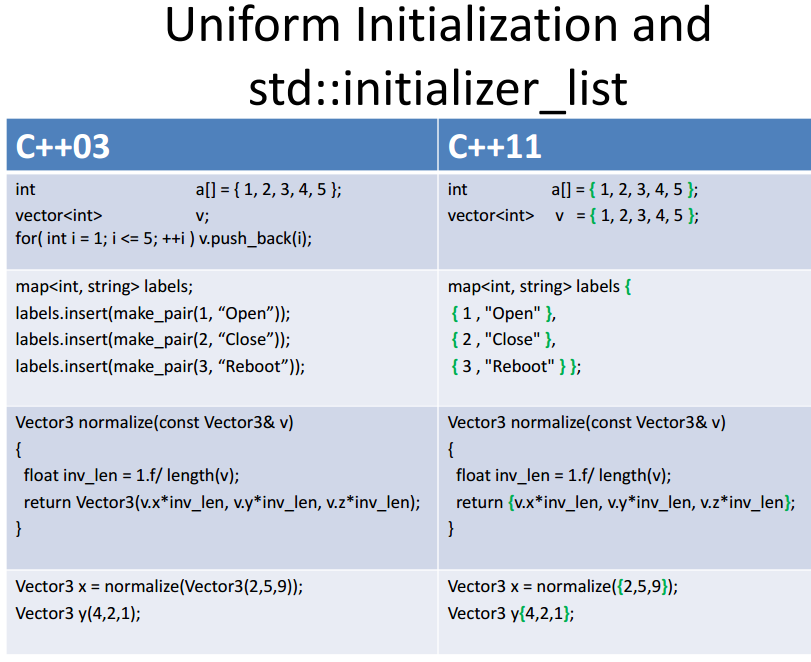
C++11 (PDF slides)
Alex Sinyakov, AMC Bridge LLC
Slide after slide shows C++11 code side by side with the same code written in older C++ style or in other languages. You'll quickly notice a pattern: In example after example, C++11 code is clean, safe, and as fast as ever... and sometimes even faster.
As Bjarne Stroustrup puts it: "Surprisingly, C++11 feels like a new language: The pieces just fit together better than they used to and I find a higher-level style of programming more natural than before and as efficient as ever."
Enjoy these great quick study notes as a refresher before your next C++11 interview.
For a detailed treatment of what’s new in C++11, see Overview of the New C++ (C++11) by Scott Meyers, featured on our Get Started! page. These are Scott’s fully-annotated color training materials from his course of the same name, and the best current approximation of “a book on what’s new in C++11.” (Free sample available.)

Add a Comment
Comments are closed.